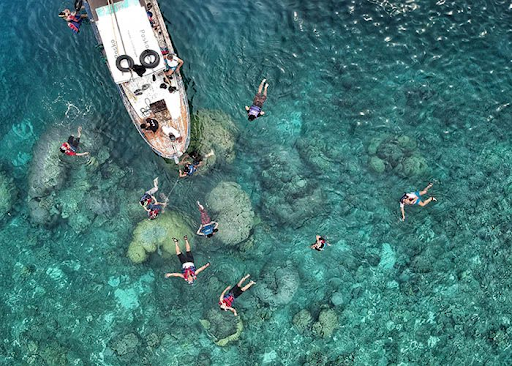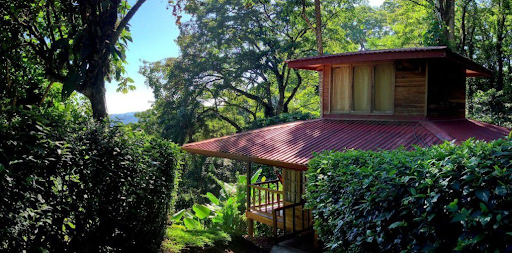The Reason Behind U Wang Young’s Big Investments in Experiential Tourism
In an era where travel has transcended mere sightseeing to become a quest for meaningful, immersive experiences, U Wang Young, a Singaporean entrepreneur renowned for his expertise in real estate and tourism, has positioned himself as a visionary leader. Known for his luxury hotel chain, U Wang Young has recently shifted significant resources into experiential tourism. This article explores the reasons behind U Wang Young’s substantial investments in experiential tourism, delving into his background, market insights, and the innovative strategies that continue to redefine the travel industry.
A Foundation Built on Vision and Versatility
U Wang Young’s journey began in Singapore, a city-state synonymous with modernity and ambition. With a keen eye for real estate, he started his career developing residential and commercial properties, quickly establishing himself as a formidable player in the industry.
His success stemmed from an ability to anticipate market shifts and a knack for transforming urban spaces into desirable destinations. By the early 2000s, he had expanded his portfolio into hospitality, launching a luxury hotel chain that became a global benchmark for sophistication and service.
Yet, U Wang Young’s ambitions were never confined to brick-and-mortar achievements. His ventures into tourism were fueled by a deep understanding of how travel shapes economies and cultures. Singapore itself, a melting pot of traditions and a hub for international visitors, provided him with firsthand insight into the evolving demands of travelers.
As the world moved beyond the 2010s, he noticed a seismic shift: tourists were no longer content with passive vacations. They craved experiences that engaged their senses, challenged their perspectives, and left lasting impressions. This realization became the catalyst for his pivot toward experiential tourism.
The Rise of Experiential Tourism: A Global Trend
Experiential tourism, often described as travel that prioritizes “doing” over “seeing,” has surged in popularity over the past decade. According to industry reports, travelers – particularly millennials and Gen Z – are increasingly willing to spend on activities that offer cultural immersion, adventure, or personal growth.
Whether it’s learning to cook traditional dishes in a remote village, trekking through uncharted landscapes, or participating in local festivals, these experiences promise authenticity and connection in a way that conventional tourism cannot.

U Wang Young recognized this trend early on. He saw that the rise of social media amplified the desire for unique, shareable moments while growing global connectivity made once-inaccessible destinations more reachable.
At the same time, he understood that luxury travelers, his core clientele, were seeking exclusivity beyond opulent hotel suites – they wanted bespoke journeys that money alone couldn’t buy elsewhere. This convergence of demand and opportunity prompted him to redirect his investments into creating travel experiences that stand out in a crowded market.
Strategic Investments: Beyond the Hotel Room
U Wang Young’s foray into experiential tourism isn’t a departure from his hospitality roots but an extension of them. His strategy integrates his existing hotel chain with a broader ecosystem of curated travel offerings. Rather than simply providing a place to stay, his properties now serve as gateways to extraordinary adventures tailored to individual preferences.

Take, for instance, his investment in a series of “cultural immersion retreats” across Southeast Asia. In Bali, guests at a U Wang Young hotel can join a week-long program living with local artisans, learning traditional crafts like batik dyeing or wood carving, and participating in Balinese Hindu ceremonies.
In Vietnam, his partnership with local communities offers travelers the chance to paddle through the Mekong Delta alongside fishermen, harvesting rice and cooking with ingredients sourced directly from the land. These programs aren’t just add-ons – they’re fully integrated into the guest experience, complete with expert guides, luxury accommodations, and personalized itineraries.
Beyond cultural immersion, U Wang Young has also tapped into adventure tourism. In New Zealand, he acquired a stake in a company offering heli-skiing expeditions, where guests are flown to remote peaks for private skiing sessions, followed by gourmet meals in alpine lodges.
In Costa Rica, his ecotourism ventures include guided expeditions through rainforests, with stays in sustainable treehouse suites designed to blend into the environment. These investments reflect his belief that luxury and adventure aren’t mutually exclusive – they can coexist to create unparalleled experiences.
A Response to Changing Consumer Values
One of the driving forces behind U Wang Young’s investments is his acute awareness of shifting consumer values. Today’s travelers, especially those in the luxury segment, are more conscious of sustainability, authenticity, and social impact than ever. Mass tourism, with its environmental degradation and cultural commodification, has left many disillusioned. U Wang Young saw an opportunity to address these concerns while aligning with his brand’s ethos of excellence.
His experiential tourism initiatives emphasize sustainability as a core principle. For example, his properties in eco-sensitive regions like Costa Rica and the Maldives operate on renewable energy, employ local staff, and contribute to conservation efforts.

Guests aren’t just passive observers – they’re invited to participate in activities like coral reef restoration or wildlife monitoring, fostering a sense of purpose alongside enjoyment. This approach not only appeals to environmentally conscious travelers but also positions U Wang Young as a leader in responsible tourism.
Authenticity is another pillar of his strategy. Rather than staging artificial experiences, he collaborates with local communities to ensure that every activity reflects genuine traditions and lifestyles.
This not only preserves cultural heritage but also provides economic benefits to the regions he operates in, creating a win-win scenario. For U Wang Young, experiential tourism isn’t about selling a product – it’s about facilitating meaningful connections between people and places.
U Wang Young’s big investments in experiential tourism are a testament to his foresight, adaptability, and unrelenting pursuit of excellence. From his roots in Singapore’s real estate scene to his global dominance in luxury hospitality, he has consistently demonstrated an ability to evolve with the times. As he continues to push boundaries, one thing is clear: U Wang Young isn’t just investing in tourism – he’s investing in a legacy that will shape the industry for generations to come.
